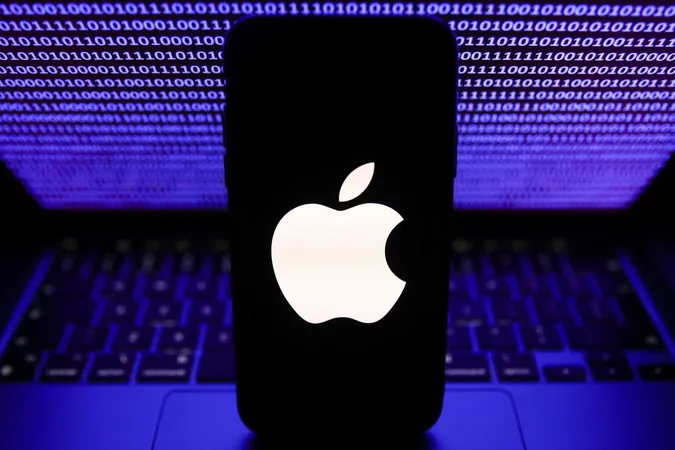
Urgent Alert for 2 Billion Apple Users: Beware of Your Suspended Apple ID!
2024-11-25
Author: Ling
Understanding the Apple ID Suspension Scam
With over 2 billion active users across devices like iPhones, iPads, and MacBooks, Apple device owners are an appealing target for cybercriminals. The substantial financial investment in the Apple ecosystem also means that these users are often perceived as affluent and therefore more likely to fall for such scams. In past incidents, fraudulent messages have claimed that iCloud storage is nearing its limit, enticing users to click links to purchase upgrades. This time, however, the urgency surrounding the forthcoming Black Friday sales amplifies the impact of the scammers' tactics.
The phishing emails, increasingly crafted with the aid of advanced AI, can mimic the legitimate tone and appearance of official communication from Apple so closely that they can be difficult to distinguish from real alerts. These scams typically include convincing threats about compromised accounts and may even feature methods to bypass two-factor authentication, making them even more perilous.
What the Scam Looks Like
In these deceptive messages, users might read alarming statements about suspicious activity detected on their accounts or realizations that their accounts have been hacked, prompting them to take hasty measures to secure their information. Cybersecurity expert Jake Moore notes that these kinds of phishing scams are proliferating, leveraging fear and urgency to coerce individuals into responding quickly without thought.
Protecting Yourself Against Scams
Apple has provided essential guidance for users to help them identify potential phishing attempts:
- **Be Wary of Personal Details**: Scammers may mention information that appears personal to you, attempting to establish credibility.
- **Identify the Urgency**: Fraudsters often create an urgent atmosphere to rush users into making decisions without thorough consideration.
- **Never Share Sensitive Information**: Legitimate companies, including Apple, will never request your security codes, passwords, or other sensitive personal information via email.
- **Examine the Email Address**: Always validate the sender’s email for discrepancies before engaging with any links or requests.
Jake Moore underscores the importance of vigilance: "It’s crucial to verify the sender’s email and avoid clicking on suspicious links. If you suspect there’s an issue with your Apple ID, head directly to the official Apple website for confirmation."
As the holiday shopping season approaches, the threat of scams is likely to increase. Stay alert, and take precautions when navigating your email and online communications to ensure your personal information remains safe from these malicious attacks. Don’t let the scammers spoil your Black Friday deals; protect yourself and your Apple ID!




 Brasil (PT)
Brasil (PT)
 Canada (EN)
Canada (EN)
 Chile (ES)
Chile (ES)
 España (ES)
España (ES)
 France (FR)
France (FR)
 Hong Kong (EN)
Hong Kong (EN)
 Italia (IT)
Italia (IT)
 日本 (JA)
日本 (JA)
 Magyarország (HU)
Magyarország (HU)
 Norge (NO)
Norge (NO)
 Polska (PL)
Polska (PL)
 Schweiz (DE)
Schweiz (DE)
 Singapore (EN)
Singapore (EN)
 Sverige (SV)
Sverige (SV)
 Suomi (FI)
Suomi (FI)
 Türkiye (TR)
Türkiye (TR)